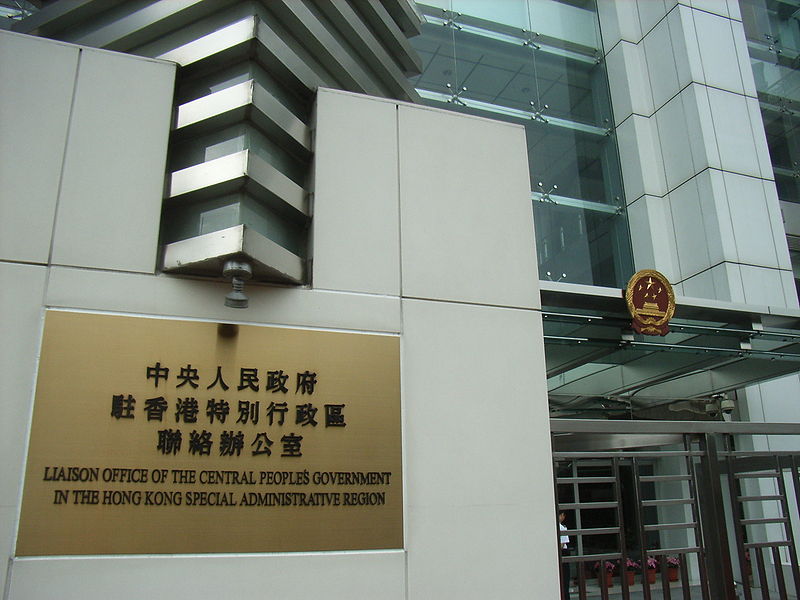 |
| The Liaison Office of the Central People's Government in the Hong Kong Special Administrative Region (via Wikimedia Commons) |
In an article published on Chinese state-run news outlet People's Daily on June 28, the Liaison Office of Chinese central government in Hong Kong argued that Xi Jinping Thought must be applied to the former British colony in order to promote nationalism and solve Hong Kong's "long-term problems".
The op-ed quotes a speech that Xi Jinping gave during a visit to Hong Kong in the summer of 2017 to celebrate the 20th anniversary of the handover. "As a special administrative area under the direct jurisdiction of the Central People's Government, Hong Kong has since the day of the handover once again become part of the nation's system of government," Xi had said.
According to the Liaison Office, Xi Jinping Thought on Socialism with Chinese Characteristics for a New Era is "the most recent outcome of Chinese Marxism," it is "Marxism for the 21st century."
The article argues that Xi Jinping Thought is the basis of the governance of Hong Kong, Macau, as well as Taiwan. It stresses the importance of economic development and people's livelihood, but it does not mention the development of democracy or the protection of the freedoms guaranteed by the Basic Laws of Hong Kong and Macau.
The piece clearly lays out the vision of the Chinese government for the future of Hong Kong.
First, Hong Kong must solve "long-term problems" that have accumulated over time - a reference to Hong Kong society's resistance to Communist one-Party rule and its desire for democratic reforms.
Second, the study of Marxism must serve to develop a "cultural mainstream promoting love for the country and love for Hong Kong." This phrase reflects Beijing's desire to impose its nationalist agenda on the former British colony, whereby the meaning of nationalism is defined by the Communist Party and citizens are expected to accept it unquestioningly.
Third, Hong Kong must introduce "national education" in order to promote a "correct view of history, of the nation, of the country, and of the culture." Plans to adopt national education into the curriculum of Hong Kong schools led to mass protests in 2012.
Fourth, Hong Kong must play its role in Xi Jinping's Belt and Road Initiative as part of the so-called Greater Bay Area that includes the mainland Chinese province of Guangdong as well as the two special administrative regions of Macau and Hong Kong.
Since 2012 the Communist Party has tightened its grip on Hong Kong, raising fears that Beijing will eventually restrict freedoms and the rule of law as it does on the mainland.
Comments
Post a Comment